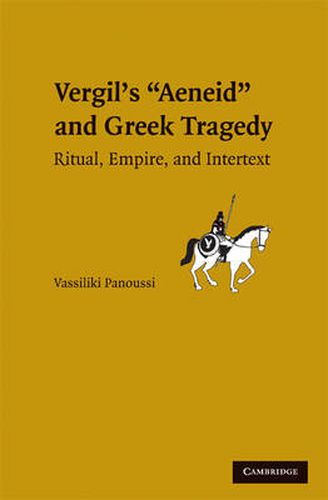Readings Newsletter
Become a Readings Member to make your shopping experience even easier.
Sign in or sign up for free!
You’re not far away from qualifying for FREE standard shipping within Australia
You’ve qualified for FREE standard shipping within Australia
The cart is loading…






This book is a systematic study of the importance of Greek tragedy as a fundamental ‘intertext’ for Vergil’s Aeneid. Vassiliki Panoussi argues that the epic’s representation of ritual acts, especially sacrifice, mourning, marriage, and maenadic rites, mobilizes a connection to tragedy. The tragic-ritual model offers a fresh look into the political and cultural function of the Aeneid, expanding our awareness of the poem’s scope, particularly in relation to gender, and presenting new readings of celebrated episodes, such as Anchises’ games, Amata’s maenadic rites, Dido’s suicide, and the killing of Turnus. She interprets the Aeneid as a work that reflects the dynamic nature of Augustan ideology, contributing to the redefinition of civic discourse and national identity. In her rich study, readers will find a unique exploration of the complex relationship between Greek tragedy and Vergil’s Aeneid and a stimulating discussion of problems of gender, power, and ideology in ancient Rome.
$9.00 standard shipping within Australia
FREE standard shipping within Australia for orders over $100.00
Express & International shipping calculated at checkout
This book is a systematic study of the importance of Greek tragedy as a fundamental ‘intertext’ for Vergil’s Aeneid. Vassiliki Panoussi argues that the epic’s representation of ritual acts, especially sacrifice, mourning, marriage, and maenadic rites, mobilizes a connection to tragedy. The tragic-ritual model offers a fresh look into the political and cultural function of the Aeneid, expanding our awareness of the poem’s scope, particularly in relation to gender, and presenting new readings of celebrated episodes, such as Anchises’ games, Amata’s maenadic rites, Dido’s suicide, and the killing of Turnus. She interprets the Aeneid as a work that reflects the dynamic nature of Augustan ideology, contributing to the redefinition of civic discourse and national identity. In her rich study, readers will find a unique exploration of the complex relationship between Greek tragedy and Vergil’s Aeneid and a stimulating discussion of problems of gender, power, and ideology in ancient Rome.